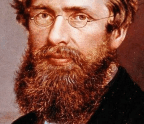


In the long annals of ancient Egyptian history, only one pharaoh is accorded the epithet ‘the Great’: Ramesses II, third ruler of the 19th dynasty, who reigned for 66 years and two months in the 13th century BC (1279–1213). Lauded, like all pharaohs, during his lifetime, Ramesses also achieved lasting, posthumous fame as an exemplar of royal majesty and might. Before the discovery of Tutankhamun’s tomb a century ago, Ramesses II was without doubt the most famous pharaoh. When writers wanted to conjure up the world of ancient Egypt – its divine kingship and monumental architecture, its abundance and imperial grandeur – they thought of Ramesses.
A simple list of his achievements is impressive enough: he sired more children, and left behind more monuments, than any other pharaoh; he celebrated 13 jubilees and lived into his nineties; he fortified Egypt’s borders, and maintained its commercial and diplomatic influence; he negotiated the earliest known comprehensive peace treaty in history with Egypt’s arch-enemy, and presided over a glittering court which drove innovations in literature, art, architecture and scholarship. But other pharaohs could – and did – claim similar accomplishments. What made Ramesses II a truly great king?
When writers wanted to conjure ancient Egypt’s divine kingship and imperial grandeur, they naturally thought of Ramesses
To examine that question we might first turn to the opening five books of the Hebrew Bible, compiled 700 years after Ramesses’ death, where the pharaoh




